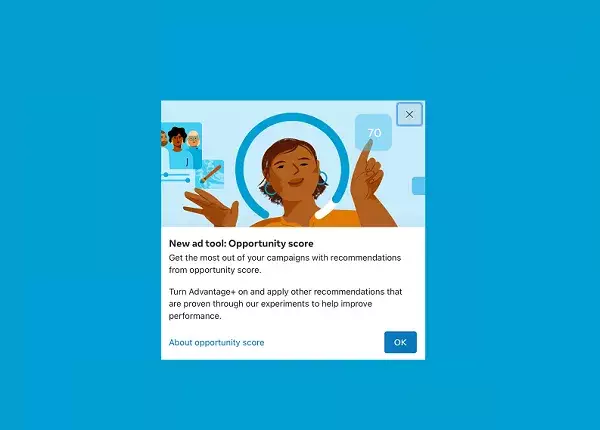Meta has increasingly focused on providing robust tools for advertisers, and its newly refined Opportunity Score metric is a testament to this dedication. In today’s digital landscape, where competition is fierce and consumer behavior is unpredictable, ensuring that ads reach their full potential can feel daunting. The Opportunity Score serves as a guiding star for marketers, presenting a clear and quantifiable assessment of an ad campaign’s positioning in terms of performance and optimizability.
The Opportunity Score offers a simple valuation—a numeric score ranging from 0 to 100—indicating how well an advertising campaign is structured to drive results. The score is not just a standalone figure; it is accompanied by actionable recommendations tailored to enhance campaign performance. By integrating artificial intelligence, Meta presents insights that are not only easy to digest but also highly practical, resulting in immediate applications that are crucial for any savvy advertiser.
Deciphering the Metrics for Efficacy
The core of the Opportunity Score lies in its data-driven foundation, which takes into consideration myriad factors tied to ad performance across the Meta ecosystem. It aggregates insights from Meta’s extensive database to provide recommendations aimed at maximizing campaign efficiency. Advertisers are alerted to potential pitfalls, such as formatting issues or policy violations, and receive guidance on best practices to follow.
What’s particularly commendable is the score’s coupling with real-time suggestions, empowering advertisers to implement recommended actions with minimal delay. Early baosts from advertisers who have leveraged these recommendations indicate a remarkable 5% median decrease in cost per result. This statistic not only showcases the score’s potential for effectiveness but also emphasizes the importance of data-driven decision-making in modern advertising strategies.
Critique and Considerations
While the Opportunity Score presents a promising approach to ad optimization, it’s important for advertisers to maintain a critical perspective. The score is intrinsically tied to Meta’s understanding of success, which, while built on extensive data, could be subject to biases that may not apply universally to all campaign objectives. Effectiveness is not guaranteed; the recommendations hinge on broad trends that may not resonate with specific audiences or goals.
Furthermore, marketers must keep in mind that implementing every suggested change may not always align with their brand strategy or campaign intent. The Opportunity Score, designed to encourage action, runs the risk of pushing advertisers toward a one-size-fits-all model that overlooks the nuanced craftsmanship of brand storytelling. Thus, while automation and AI-driven insights offer tremendous advantages, the art of advertising must not be overshadowed by algorithmic prescribing.
A Call to Embrace Innovation Wisely
In a world where data-driven insights are becoming increasingly invaluable, Meta’s Opportunity Score signifies an exciting leap forward in ad performance assessment. It promises the prospect of data-backed improvements while also highlighting the necessity for advertisers to engage thoughtfully with such tools. Adopting AI-fueled recommendations can undoubtedly provide a competitive edge, yet each decision must remain true to the brand’s unique voice and objectives. Striking this balance is where the true innovation in digital marketing lies, making successful campaigns not merely an exercise in following recommendations but an art of skillful execution grounded in genuine connection with audiences.


Leave a Reply